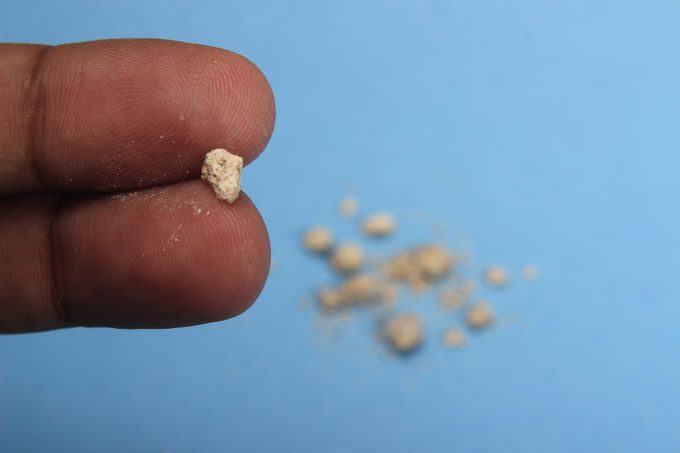After kidney stones are expelled from the body, patients may still experience lingering damage caused by the elimination process. These damages may result from the effects of medication or devices used during the expulsion. Additionally, there could be another stone remaining in the body, which needs to be verified through other diagnostic methods.
Large kidney stones can cause significant pain, and typically, the pain subsides once the stone is expelled. Patients may occasionally feel a sharp or mild ache, but this is usually a temporary symptom.
Persistent pain after kidney stones have been expelled may signal inflammation, urinary obstruction, or the presence of another stone left behind, and it could also stem from other conditions unrelated to the kidneys. The causes of this situation include:
Ongoing Pain
The pain may result from mild irritation and inflammation caused by the stone previously. In this case, the pain should resolve within a few days.
Remaining Stones
X-ray results may diagnose the condition of one stone; however, they do not eliminate the risk of smaller stones that may only be visible through CT scans and have not yet been expelled from the body.
In fact, individuals who have previously had kidney stones are more likely to experience recurrence. Some statistics indicate that those who have had one kidney stone have over a 50% risk of forming another stone within five years.

Image of a kidney stone after being expelled from the body. (Photo: istock).
Urinary Obstruction
Persistent pain after kidney expulsion may be due to ureteral narrowing. This can occur when the kidney stone moves, leading to scar tissue formation and inflammation. Alternatively, another stone may be blocking the ureter. This results in difficulty urinating. When urine backs up, it can affect the kidneys. Some symptoms of urinary obstruction include: pain in the abdominal and groin regions, a burning sensation during urination, urine that is pink, brown, cloudy, or foul-smelling, nausea, fever, chills, and swollen legs.
Constipation
Some pain medications for kidney stones may cause constipation as a side effect, leading to bloating and abdominal pain. In this case, patients should consult their doctor to adjust their dosage.
Referred Pain
Referred pain is the sensation of pain remote from its source, resulting from the convergence of nerve fibers in the spinal cord. Therefore, pain similar to that caused by kidney stones may also arise from other causes. If experiencing pain in the hips, back, and lower chest, the cause could be related to digestion or issues with the reproductive system.
After expelling kidney stones, if persistent pain occurs, patients should consult a doctor if they experience symptoms such as chills, fever; inability to urinate; severe fatigue; vomiting; or urine containing clots, cloudiness, or foul odor.


















































